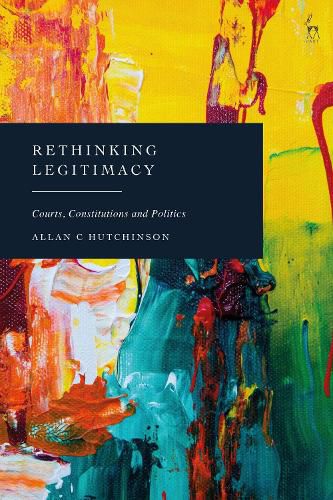Readings Newsletter
Become a Readings Member to make your shopping experience even easier.
Sign in or sign up for free!
You’re not far away from qualifying for FREE standard shipping within Australia
You’ve qualified for FREE standard shipping within Australia
The cart is loading…






This book presents a new perspective on the debate around legitimacy, politics and constitutional law in Supreme Courts.
Moving away from the troubling perception that Supreme Courts are trampling on the wrong side of the law/politics divide, it accepts and defends the critical claim that constitutional law is intrinsically and inescapably politics: in style, substance and outcome.
It explains what is involved in that claim and recommends a more nuanced and compelling account than it is caricatured to be. The book proceeds to demonstrate how the legal and judicial process can proceed if the law-is-politics critique is taken seriously. Insisting that it cannot be business as usual, the author offers a series of constructive proposals about how constitutional law and judicial decision-making can continue in anything like their present format and style.
Recognising that a more radical approach could be taken about how democracy might re-organise, the book runs with the idea that it is possible to incorporate and accommodate the law-is-politics argument within a governmental system of constitutional democracy that resembles closely what now occurs. In that sense, the book is both critical and constructive as well as principled and pragmatic.
$9.00 standard shipping within Australia
FREE standard shipping within Australia for orders over $100.00
Express & International shipping calculated at checkout
This book presents a new perspective on the debate around legitimacy, politics and constitutional law in Supreme Courts.
Moving away from the troubling perception that Supreme Courts are trampling on the wrong side of the law/politics divide, it accepts and defends the critical claim that constitutional law is intrinsically and inescapably politics: in style, substance and outcome.
It explains what is involved in that claim and recommends a more nuanced and compelling account than it is caricatured to be. The book proceeds to demonstrate how the legal and judicial process can proceed if the law-is-politics critique is taken seriously. Insisting that it cannot be business as usual, the author offers a series of constructive proposals about how constitutional law and judicial decision-making can continue in anything like their present format and style.
Recognising that a more radical approach could be taken about how democracy might re-organise, the book runs with the idea that it is possible to incorporate and accommodate the law-is-politics argument within a governmental system of constitutional democracy that resembles closely what now occurs. In that sense, the book is both critical and constructive as well as principled and pragmatic.